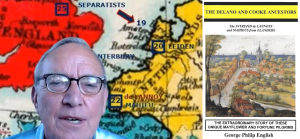Every day, there is an ever-increasing volume of family research projects launched, and the media is now full of adverts promoting various ancestry programmes. Researching your family history can become lost in a sea of information, so how do you go about tackling the insurmountable, and what are your chances of success?
Success in researching family history depends on the ancestors having done something that was recorded, on those records having survived and the ease in finding them. The good news is that it has become so much easier to find family records in recent years. Projects to copy, transcribe and digitise records held by archives have made them much more accessible. Information technology and the internet have transformed the effectiveness of family history research.
Of course, persistence and the ability to find ways to solve problems are important. Sir Anthony Wagner stated that the four main factors are probably status, record, name and continuity.
Status – Prominent families such as nobility are likely to be easier than others. It is more likely that they will have done something that caused information about them to be written down? Their family tree may have already been recorded. Professionals such as doctors, clergy and lawyers and others such as landowners, trades, military personnel usually have good records about them going back in time. Ironically, low status can be a help. There are good poor law records for those unfortunate enough to have ended up in the workhouse.
Record – In Britain, records are generally well preserved. Civil registration of births, marriages and deaths started in England and Wales in 1837; and in 1855 in Scotland. Before then, most parish registers have survived from the 17th century. Censuses have been taken every ten years since 1841 in all three countries. The situation is not so good in Ireland where a fire in 1922 destroyed many records.
Name – Researching ancestors is much easier if they had an uncommon name. Surnames can often be traced back to a particular part of the country, or even a certain individual. This can be the case with Scottish clans although, by their nature their name may be fairly common. Research for the Smith family is likely to be difficult but by no means impossible.
Continuity – If your ancestors lived in one place, or worked in the same trade, for many generations, family history research is usually much easier.




